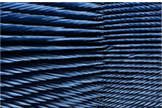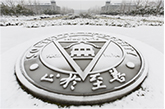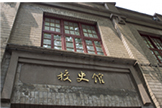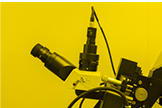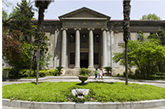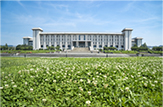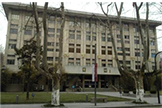On 18th April, Science Magazine commented in the column of Editors’ Choice about the ferroelectric materials research results of Xiong Ren-gen, a professor in School of Chemistry and Chemical Engineering of our university. The research results were originally published on Angew. Chem. Int. Ed (2014 Volume 53). According to Science, Xiong’s research achievements made significant influence on further researches and applications of ferroelectric thin films.
Ferroelectric materials have a permanent electric dipole moment that can be switched by the application of an external electric field, a property that makes them widely used in sensing, memory, and actuators. Most commonly used ferroelectrics are perovskites, such as lead zirconium titanate (PZT). Molecular ferroelectrics present an interesting, more environment-friendly alternative, but in the technologically relevant thin-film form they have been found to perform considerably more poorly than in bulk. Zhang et al. find that imidazolium perchlorate is a molecular ferroelectric with relatively high spontaneous polarization and transition temperatures. The authors grow films of this material by depositing it on a substrate by the spin-coating method, and induce dendritic crystal growth on the surface by placing it in a saturated solution. The resulting films show properties comparable to those of the bulk material and, in addition, their piezoelectric response, relevant to applications and measured by piezoresponse force microscopy, compares well to those of films of the more established ferroelectrics such as PZT.
- Study
- Research & Innovation
- Schools & Colleges
- School of Architecture
- School of Mechanical Engineering
- School of Energy &Environment
- School of Information Science and Engineering
- School of Civil Engineering
- School of Electronic Science and Engineering
- School of Mathematics
- School of Automation
- School of Computer Science and Engineering
- School of Physics
- School of Biological Science & Medical Engineering
- School of Materials Science & Engineering
- School of Humanities
- School of Economics & Management
- School of Electrical Engineering
- School of Foreign Languages
- Department of Physical Education
- School of Chemistry and Chemical Engineering
- School of Transportation
- School of Instrument Science & Engineering
- School of Arts
- School of Law
- Medical School
- School of Public Health
- Chien-Shiung Wu College
- College of International Students
- College of Software Engineering
- School of Marxism
- School of Artificial Intelligence
- School of Life Science and Technology
- Laboratories
- Centers
- Schools & Colleges
- About
- Campus Service
- Library







